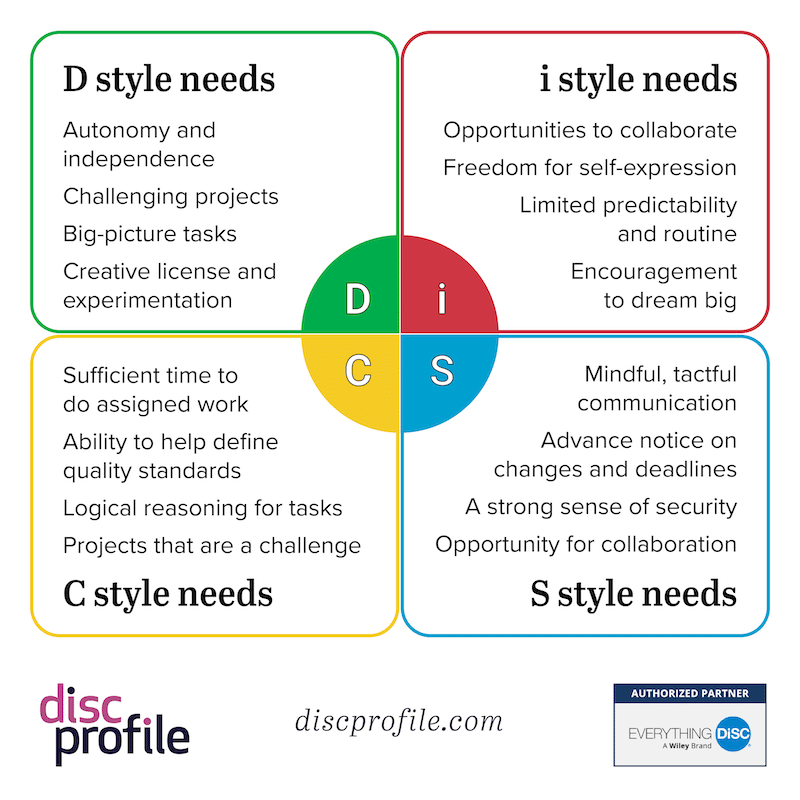What motivates you might not motivate others
Are you trying to motivate your employees, customers, or clients? You’ve probably already learned that what motivates you doesn’t always motivate them. The golden rule doesn’t always work. Instead, consider this alternative: Treat others as they want to be treated.
You can probably come up with examples of when you tried something you found very engaging, but others didn’t. For example, a yearly fundraising gala always attracts the same people, while others never show up but do respond to your mailer that focuses on progress and results. Or you’ve noticed that some staff love public recognition and others seem to be embarrassed by it.
How can you identify and motivate these different types of people?
DiSC® is a personality assessment tool used to improve work productivity, teamwork, and communication. The DiSC model can be helpful for generating creative ways to motivate different types of people. Consider the people you want to motivate. You might not know their DiSC style and that can be OK. You simply want to be sure that your motivational campaigns address every style.
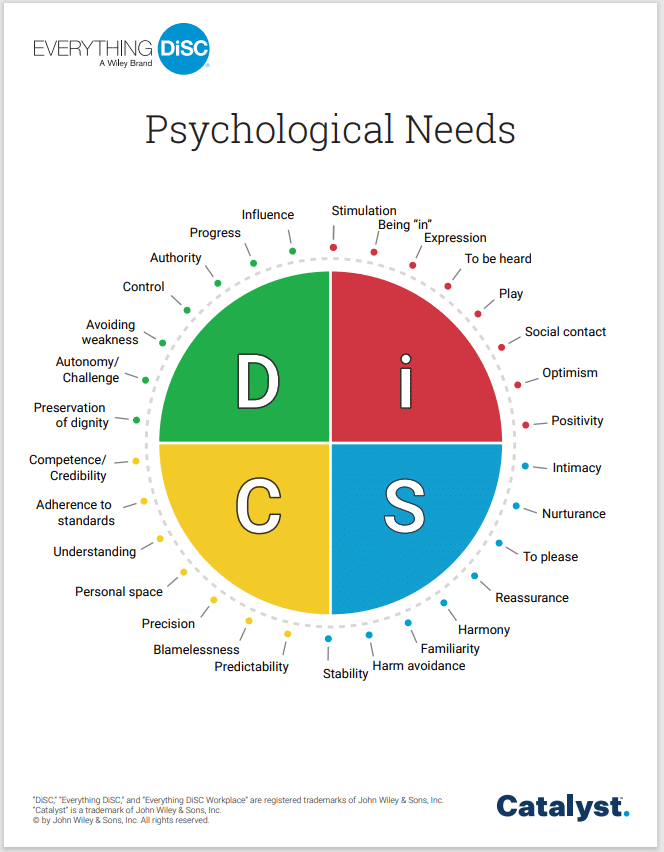
The dominant personality
The first style DiSC identifies is the D—those individuals who desire to be in charge and to win. They want to see positive results and know that they had a hand in them. They value autonomy and advancement.
For this type of personality, you might want to sponsor a competition where they can lead a team or be a judge. They like to be challenged and to solve problems, so don’t be shy in giving them one or two. Let them know that you see their results. Focus on big-picture messages.
If you don’t have a strong vision, communicate it well, and have some authority, someone with this style might try to take things into their own hands. You should avoid giving direct orders to a person with this style.
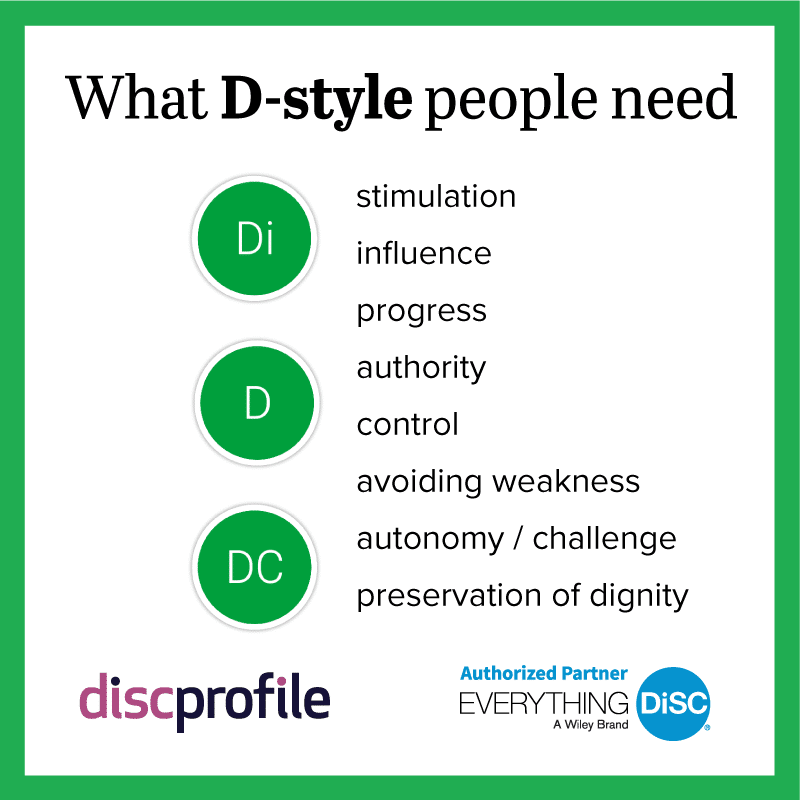
The influencing personality
The i style is motivated by social recognition, group activities, and relationships. This style also appreciates hearing about personal experiences and can identify with a personal story. They value enthusiasm and novelty.
If you’re sponsoring activities to raise awareness or celebrate a success, you’ll find these people enjoying themselves. They are often a good choice to plan such events. They will appreciate being given the authority and recognition. Let them be your cheerleaders and be sure to cheer on their efforts. Focus on new endeavors or activities.
A person with this style might want to be a spokesperson for your campaign. You might also want to let them work on something other than facts, policies, and procedures. They will appreciate not being bogged down with the details.
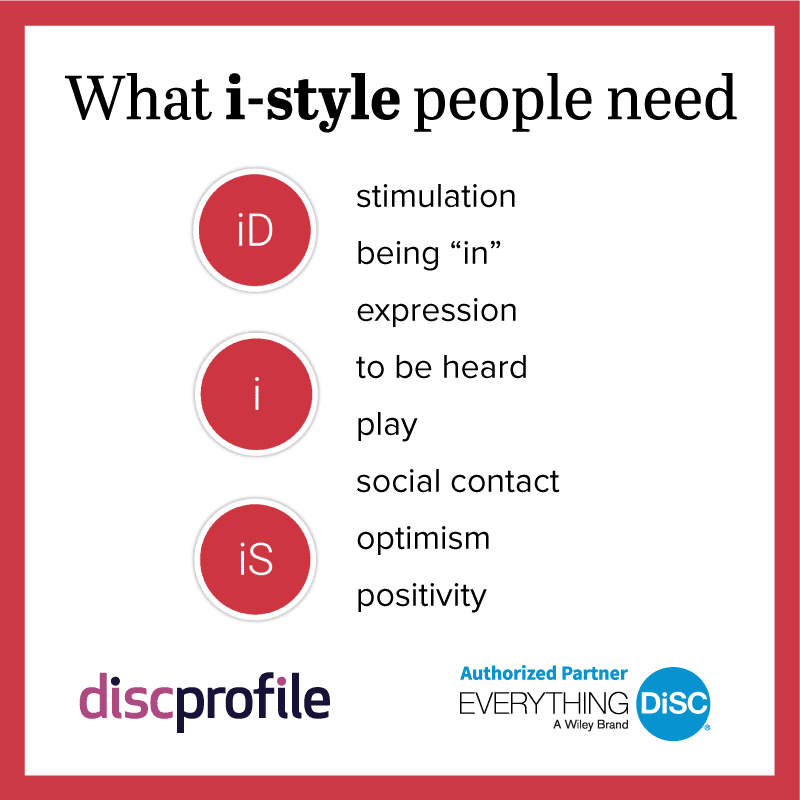
The conscientious personality
The details will appeal to a C-style person. This personality wants to gain knowledge and become the expert. They are often cautious and don’t like change, so be sure to give them access to all the facts and information they need. They value their independence and objectivity.
Let them know what steps they need to take to be successful. Give them opportunities to use their expertise. They are less likely to need recognition as long as they can tell that they’ve reached a tangible goal. Focus on facts and standards.
Be aware that a person with this style might have trouble making quick decisions or delegating any tasks you give them. If you create new procedures and don’t stick to them, you may offend the C folks.
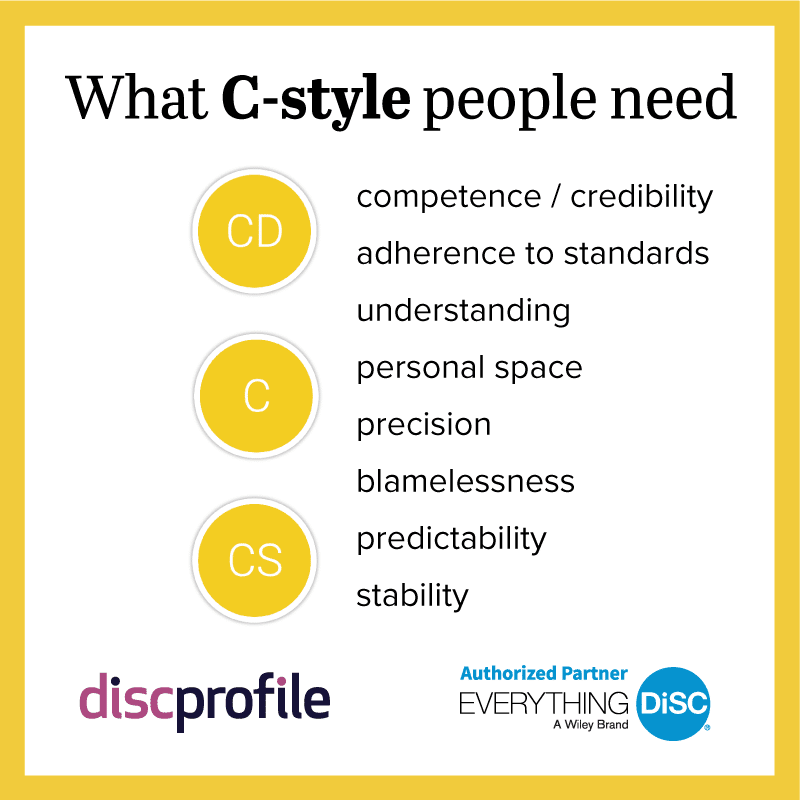
The steady personality
S-style persons really want to help. They enjoy giving support and collaborating with others. But they don’t like change. They value relatedness and stability.
Let this type of person know how their efforts make a difference in the world and that their actions matter to others. They can become your loyal supporters and enjoy having a formal role in any activities. Express your sincere appreciation for their contributions. Focus on personal connections and collaborative efforts.
If persons of this type are heavily focused on other tasks, then you might want to wait to ask them to do anything more. Take enough time to clarify any issues they bring up, and be clear on what you expect from them. Warn them about any upcoming changes.
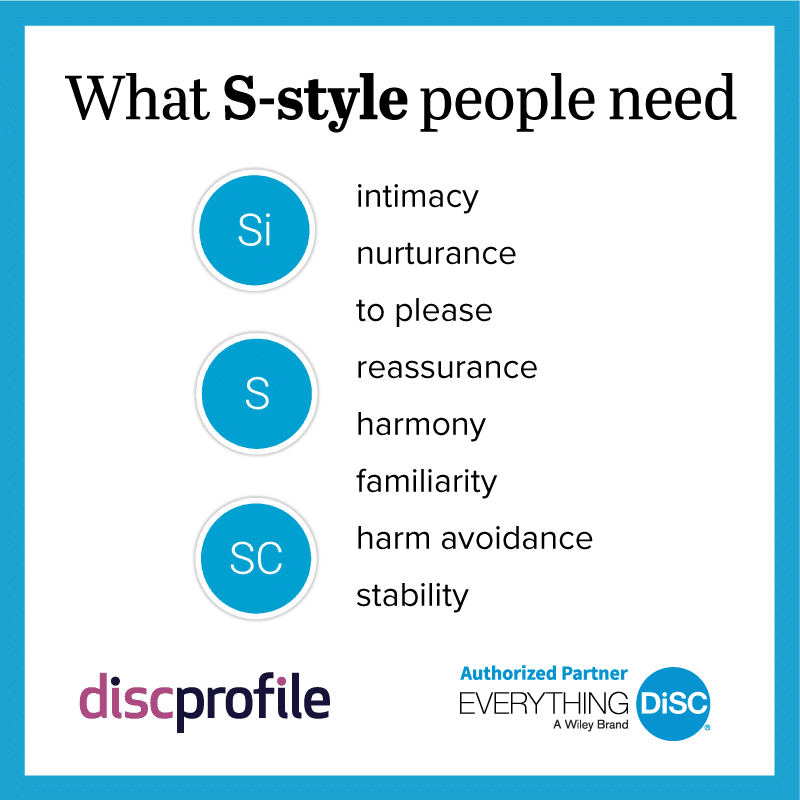
Conclusion
Can you see how one person might respond well to a thank-you card, but another might toss it before even reading it? How one person will enjoy individual public recognition, and another just wants to know that his or her team enjoyed themselves? Some people will want to know how your top leadership is involved, and some will be more interested in knowing how things will change around them.
No one motivational or recognition campaign will work for everyone you want to reach. That’s why it’s important to know your audiences and run more than one campaign. DiSC is also a good reminder that the environment in which you do your best work might not be the same as your colleagues’.
